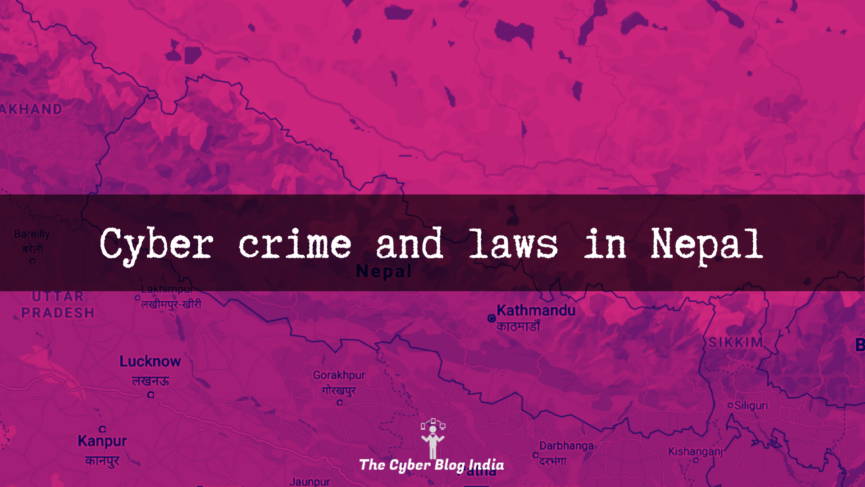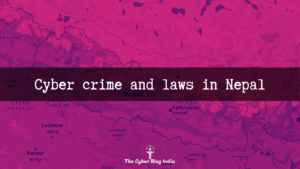Cyber crime and laws in Nepal: An overview


Cyber crime and laws in Nepal
This is the fourth article in the series covering cyber laws of various countries. The previous articles have covered countries such as Japan, New Zealand and Norway. This article offers an overview of cyber crime and laws in Nepal. Nepal has been ranked 147th in the Human Development Index. The rate of crime in Nepal has been high, and cyber crime has especially seen increased occurrence. During the ongoing pandemic, the number of cyber crime cases in Nepal has increased, despite the fact that the disease has not affected the country much.
Important Statistics
There are a total of 10.21 million people in Nepal who used the internet in 2020. The number of users increased by 315,000 between 2019 and 2020. Around 10 million people in Nepal use social media. It appears that the country’s citizens have been reluctant to report cyber crime, with only 53 cases being registered in 2017. However, 2018 saw a sharp rise in the number of cases to 132. In 2018 and 2019, a total of 180 cases were registered. Out of these 180, 125 cases were from the capital city, Kathmandu and the rest from others.
Cyber Laws in Nepal
1. The Electronic Transactions Act, 2008
This was Nepal’s first cyber law. Cyber crimes were dealt with under the Country’s criminal code before this law came into force. Since the cases of cyber crime increased, it became necessary to enact a separate law. Chapter 9 of the Act deals with offences relating to computers, the main highlights of which are as follows:
- Pirating or destroying any computer system intentionally without authority carries imprisonment for three years, or a fine of two hundred thousand rupees, or both.
- Accessing any computer system without authority results in imprisonment for three years, or a fine of two hundred thousand rupees, or both.
- Intentional damage to or deleting data from a computer system carries imprisonment for three years, or a fine of two hundred thousand rupees, or both.
- Publication of illegal material in electronic form carries imprisonment for 5 years, or a fine of one hundred thousand rupees, or both.
- Commission of a computer fraud carries imprisonment for two years, or a fine of one hundred thousand rupees, or both.
2. The Children’s Act, 1992
The aim of this Act is to protect and uphold the rights of children. It also prohibits child pornography. Section 16(2) of the Act prohibits individuals from capturing any immoral picture of a child. Section 16(3) of the Act prohibits publication and distribution of any such photographs of children.
3. The Copyright Act, 2002
This act protects the copyright of ideas, including a computer program. It prohibits people from copying and modifying the original work of others, and using it for their own advantage or economic benefits.
4. The Individual Privacy Act, 2018
This act is the first legislation in Nepal to protect the right to privacy of its people, and define personal information. It protects the privacy of body, family life, residence, property, and communication. It puts the responsibility on public entities to protect the personal data of individuals. They cannot transfer such data to anyone without the consent of the owner. The Act prescribes a general punishment for violation of privacy as three years of imprisonment, or a fine of NPR 30,000, or both.
End notes
All the above laws that Nepal has promulgated for cyber crimes are yet not enough. The country needs to address loopholes in these laws and encourage its citizens to report cyber crime incidents. There is also a need for comprehensive laws on e-commerce, social media, and cyber terrorism, among other spheres of cyber space. Another requirement is that of a clear definition of child pornography. A dedicated cyber crime cell is also a need of the hour. Nepal needs to work further on its cyber laws to survive in this technologically advanced world.
